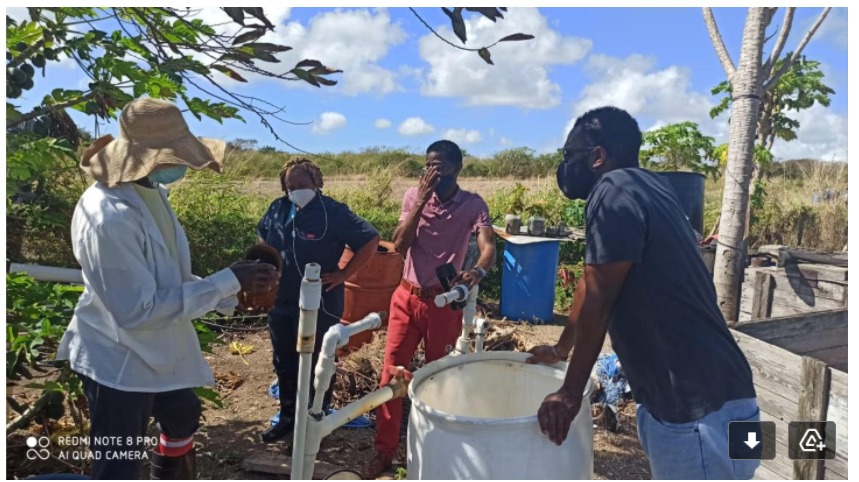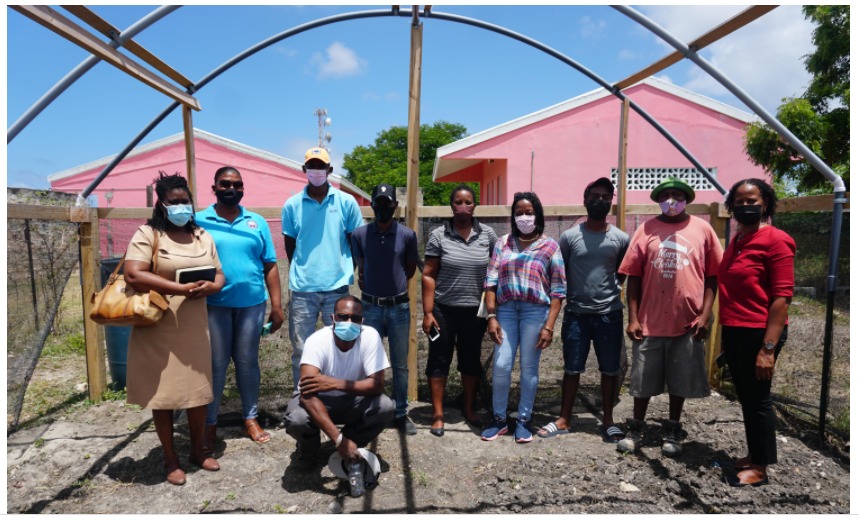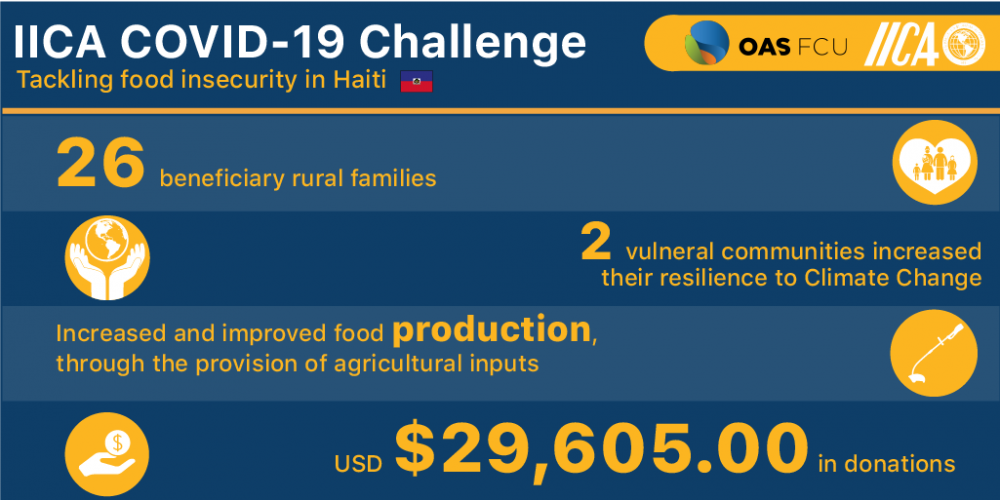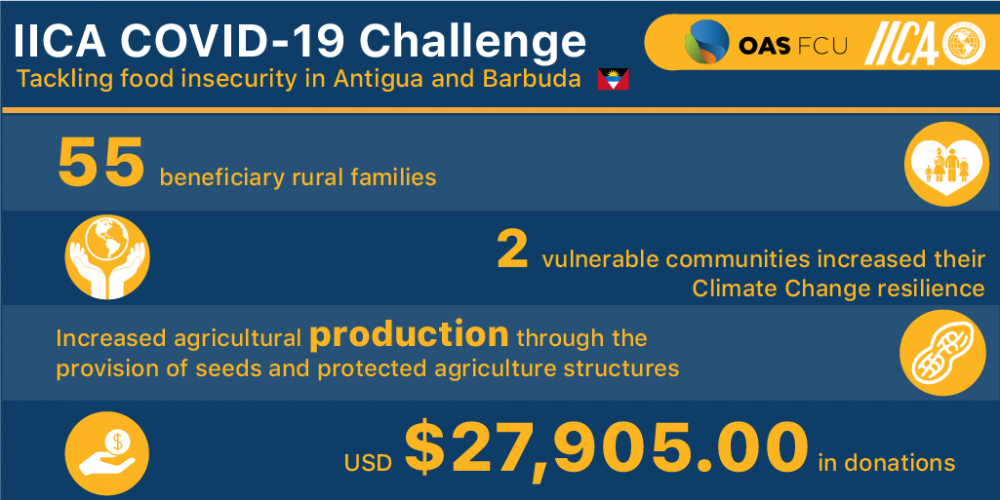Family farmers in these Caribbean countries were recently given automatic and efficient irrigation systems, soil preparation tools, protective structures and climate resilient seeds.

San José, 27 May 2021 (IICA) – Rural communities in Haiti and in Antigua and Barbuda have now increased their capacity to produce food and tackle droughts, hurricane winds and recurrent flooding, thanks to the distribution of seeds, irrigation equipment, machinery and other inputs raised through the 2020 crowdfunding campaign spearheaded by the Inter-American Institute for Cooperation on Agriculture (IICA), the Organization of American States Staff Federal Credit Union (OAS FCU) and the Ministries of Agriculture of those countries.
The digital campaign raised more than USD 50,000 to supply family farmers in the Sanderson-Burkes and Codrington communities of Barbuda, and in Bas Boen and Montrouis, in Haiti, with material needed to strengthen their agriculture sector and bolster their food and nutritional security to mitigate the effects of climate change and variability.
In total, 55 Antigua and Barbuda families and 26 families in Haiti benefitted from the project. The funds amassed from the campaign facilitated the acquisition and distribution to producers of corn seeds, tools for proper soil preparation prior to planting and protective structures to more precisely control humidity and temperature in the fields.
Automatic drip irrigation lines were also installed in the Antigua and Barbuda communities.
The crowdfunding initiative is considered one of the strategic responses from IICA “to address the weakened socio-economic reality in the Caribbean.
“With this innovative financing tool, IICA partnered with the OAS Credit Union to strengthen the financial resilience of vulnerable communities in Haiti and Antigua & Barbuda as they strive to respond and recover from the ravages of the current crisis”, said the Director, External and Institutional Relations of IICA, Beverly.
According to Rachelle Pierre Louis, Coordinator of Technical Cooperation at IICA Haiti, “During the COVID-19 pandemic, the idea is to help the rural communities of Bas Boen and Montrouis to have some sweet corn so they can grill or boil their corn all the time, and to help them because they have a problem of labor and most young people don’t go out to the field and work”.
“So, we have already distributed six small tools for weeding, and we are introducing a new one for weeding, fabricated in Haiti. It’s good, because we are currently in the agriculture season in Haiti, so this is the appropriate time”.
Craig Thomas, IICA National Specialist in Antigua and Barbuda, indicated that, “Under the crowdfunding initiative, we were able to conceptualize a project proposal to rapidly multiply the local Barbuda peanut variety to increase production, which is a priority action for the Ministry of Agriculture and the Barbuda Council. A seedling nursery and a rapid humidity multiplication bin were constructed in Barbuda, which is an introduction of new propagation techniques to increase vegetable production under controlled conditions”.

Through the local seed program of the Caribbean Agricultural Research and Development Institute (CARDI), more than 20 small vegetable farmers received seedlings and in Antigua, another 25 will received plantlets in the coming months.
Today, IICA specialists from the Caribbean region are overseeing the delivery of training in the communities, so that they can get the most out of the benefits gained from the distribution of the seeds.
In conjunction with these initiatives, the governments of Mexico and Trinidad and Tobago partnered with the government of Haiti to facilitate the transfer of high-protein content varieties of sweet corn.
The long-term expectation is that the equipment and agricultural inputs received by the producers will encourage them to accelerate the adoption of innovations and bring about gradual improvement of agronomic practices, thereby bolstering their resilience to climate change and enabling a continuous supply of healthy, safe and nutritious food for their people.


More information:
Institutional Communication Division











